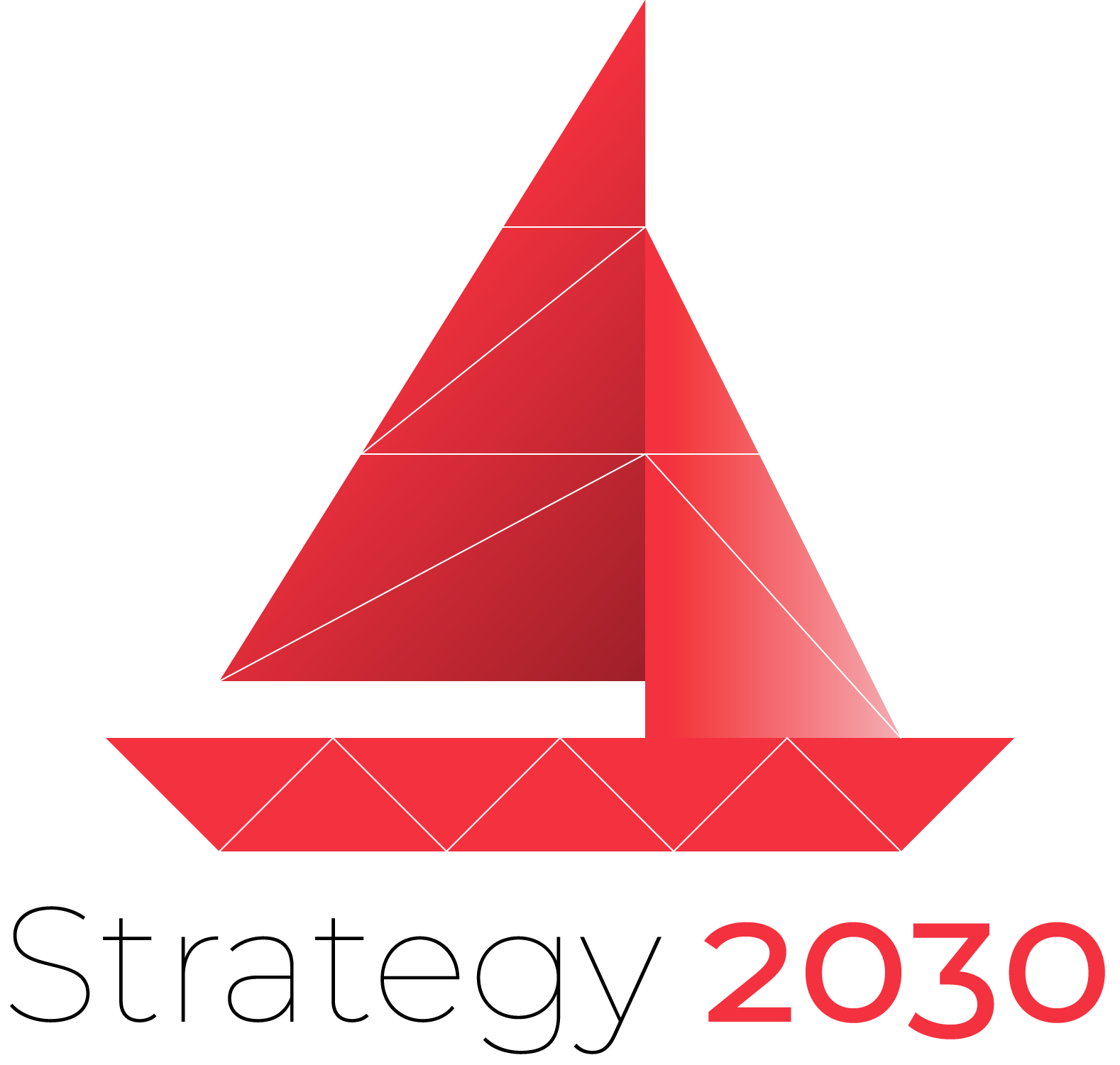IFRC STRATEGY 2030

“Strategy 2030[1] sets out how the International Federation of Red Cross and Red Crescent (IFRC) will build on over 100 years of striving for a more humane and peaceful world and adapt to emerging 21st century challenges. It ensures we will remain a dynamic global network of organizations that are fit for purpose and can best serve our communities[i].”
Introduction
From a series of transactions to a network of relationships
At the onset of the 2020s, humanitarian assistance (HA) sustained a global pandemic, climate change-related disruptions, technological acceleration, and the emerging role of youth and local communities as agents of change. HA is embracing these tectonic shifts to maximize on this transformational change. Resetting its new business model from a series of transactions to a network of relationships, IFRC 2030 Strategy pledged to privilege ongoing local actions over substitutional local services.
This transformation is driven through championing youth and locally focused and action-oriented approaches to disaster risk reduction. Strategy 2030 tackles systemic risks from pandemics, climate shocks, environmental breakdown, and natural disasters. The end-goal is to promotes a culture of risk-awareness and disaster reduction through the scope of remote programs, while addressing the growing gap between the “technological haves and the have-nots.”
Mobilizing local action for global reach
Changing the playing field
Embracing the rights-based approach to HA, humanitarian practitioners have a duty to not only give aid to people during crises, but to restore their rights beyond these emergency needs. HA has broadened its mission and lifespan of field operations, especially among the most vulnerable communities, under complex socio-economic and political contexts. Strategy 2030 embraces “a multi-stakeholder platform among governments, private and public institutions to raise its voice on behalf of the vulnerable globally, while supporting communities to build a strong and secure future”. Pursuant to this foregoing “call,” Strategy 2030 emboldens National Societies and the IFRC Secretariat to transform to become more anticipatory, embracing foresight and agility, under a platform for change philosophy. As such IFRC’s strategy engages relief operations and programs to build strong local partnerships if humanitarian objectives are to be achieved.
Sustainable change is locally driven.
People lead safe, healthy, and dignified lives
IFRC believes five global challenges – climate and environmental crisis; evolving crisis and disasters; growing gaps in health and well-being; migration; and identity, values, power, and inclusion – are the most pressing existing and emerging risks facing the movement in the next ten years. They are interconnected and will require committed local action to manage them and bring about positive global change.
Strategy 2030 improves local response and preparedness to tackle the underlying causes of crises. Their impact can be reduced or prevented when people can anticipate, respond to, and quickly recover from crisis. The Strategy encourages well-being at all levels. This includes promoting positive social, mental, and physical health, as well as supporting people’s livelihoods. The goal is for people to lead safe, healthy, and dignified lives and have opportunities to thrive. Strategy 2030 promotes and support more inclusive, equitable and cohesive societies to embody IFRC’s humanitarian values.
Strategy 2030 also identifies seven transformations essential for the network to be prepared to respond to the above challenges. Mobilizing local action for global reach and achieving all strategic goals can succeed when: supporting and developing National Societies as strong and effective local actors; inspiring and mobilizing volunteerism; ensuring trust and accountability; working effectively as a distributed network; influencing humanitarian action; undergoing a digital transformation; and financing the future.
Championing the special relationship with local partners
Future generations can reduce their exposure to disasters, reining in the risks they face
Strategy 2030 engages local partners to confront recurring natural disasters and local conflicts, in partnership with the National Societies network and local external partners. Promoting a national culture of risk-awareness and disaster reduction, Strategy 2030 pledged to guaranty future generations can reduce their exposure to disasters, reining in the risks they face. Strategy 2030 reinforces the Sendai Framework (2015 – 2030) [2]’s target to “Reduce direct disaster economic loss in relation to global gross domestic product (GDP) by 2030”. The framework includes four priorities: understanding disaster risk; strengthening disaster risk governance to manage disaster risk; investing in disaster risk reduction for resilience; and enhancing disaster risk preparedness for effective response and “Build Back Better” in recovery rehabilitation and reconstruction. Strategy 2030 is committed to developing, along with National Societies, the initial metrics to measure its implementation and effectiveness for local government to assess the ethical disbursement of humanitarian aid related funding.
Transparency and accountability best practices
Strategy 2030 seeks a common understanding for local government to comply with IFRC’s commitment to transparency and accountability best practices, under the ‘Triple Defense’ Framework Against Fraud and Corruption. The ‘Triple Defense’ Framework Against Fraud and Corruption [3] requires governance transparency; the protection of civil group’s ability to operate; formally recognizing the role of independent monitoring groups; and strengthening civil society group’s capacity to implement their efforts.
This commitment requires for IFRC to consistently apply transparency and anti-corruption measures to all grants and loans. Governments should publish procurement plans, including the names and beneficial owners of all companies awarded contracts. Governments should respect the rights of civil society groups by repealing or amending laws that prevent groups from safely monitoring government actions. Governments should formally recognize independent monitoring organizations as stakeholders in loan agreements and establish a channel for them to report allegations of wrongdoing. Governments should consider engaging select groups as independent monitoring organizations in contexts in which corruption risks are especially high.
Strengthening the civil society capacity
Disruptive change leads to innovation. Smart changes lead to thinking and action.
Strategy 2030 empowers the IFRC networks to be more fit and thrive through the complex and dynamic changes occurring throughout the world, to meet future humanitarian and development challenges more effectively. Young innovators from around the world are making a tremendous impact in their communities. The Solferino Academy aims at challenging and inspiring the way people think, act, and connect.
The Academy embodies the values of Strategy 2030, as a team of experts in the process of innovation and collaborative, creative problem solving. It works as part of the IFRC network to bring together the right people to unlock their capacity to solve their most complex challenges, to explore ideas, develop solutions, and capitalize on opportunities in unique and powerful ways.
In 2021, the IFRC Limitless Youth Innovation Academy was designed with a capability-building approach to identify young innovators with ideas, from the Red Cross / Red Crescent network, and build a support system for them. Limitless program calls for young people with innovative ideas on how to help their communities to overcome their systemic challenges. Today, these projects have reached to over 300,000 people in urban, rural, and often underserved communities, in a very creative way and with impressive impacts. Some of these initiatives can be viewed on the Academy’s website.
Limitless Stories – Solferino Academy
Transforming Africa, one young person at a time
Grace Waswa joined the Kenyan Red Cross to make a difference. She created Vijana Tupo Initiative [4] – which means one youth at a time – a one-stop place for every young person to tackle systemic unemployment in Kenya. Vijana Tupo Initiative is an interactive platform providing mentoring and financial solutions, for underserved youth to learn from and become economically independent. The initiative has reached out to over 5,000 youth.
Saratu Aboki[5] was able to train 120 farmers in Nigeria from 15 different communities who could no longer afford fertilizers and farming implements, affecting their crop yield, and causing starvation in the region. Through the Solferino Academy’s Limitless program, raining over 120 volunteers, Saratu helped farmers with a more cost-effective way of farming. These farmers are training other farmers creating a sustainable impact in the region.
Moving humanity with very simple steps
During the Covid-19 pandemic, Farah Putri [6], a youth volunteer at the Indonesian Red Cross, saw many young people having more and more digital activities and developing mental health issues. Through the Limitless Youth Innovation Process, Farah created a platform to address this issue through social media campaigns (#DigitalCampaignByYouthPMI). The first campaign reached out to over 20,000 Instagram users and the second campaign to 35,000.
Conclusion
With a unique and specific access to vulnerable communities in disaster and conflict zones, the humanitarian community can contribute to and develop sustainable and resilient systems. Strategy 2030 pledged to reinforce these multiple partnerships and peer-to-peer support in the face of pandemics, climate shocks and environmental breakdown adverse events, while engaging local partners. Because inherent challenges encountered on the ground, from institutional and capacity discrepancies to inflows not reaching local economies, allegations against humanitarian organizations are real. They include saturating food and local markets, threatening live crops of local farmers, or the huge fiscal amortization of subsidized costs, as a burden on countries with fiscal issues.
Partnerships with local leaders and governments are essential to elevate humanitarian issues to the top of the national political agenda and international interests. Strategy 2030 will support the movement and humanitarian practitioners’ commitment to scale up effective social protection systems in policy and practice. Strategy 2030 will help guaranteeing pathways to economic security and workplace safety in vulnerable communities, recognizing the transformative impact of technology. By training remote partners and supporting the deployment of technology, Strategy 2030 will enhance the ability of the movement’s stakeholders to move up the social-economic ladder beyond their emergency needs.



